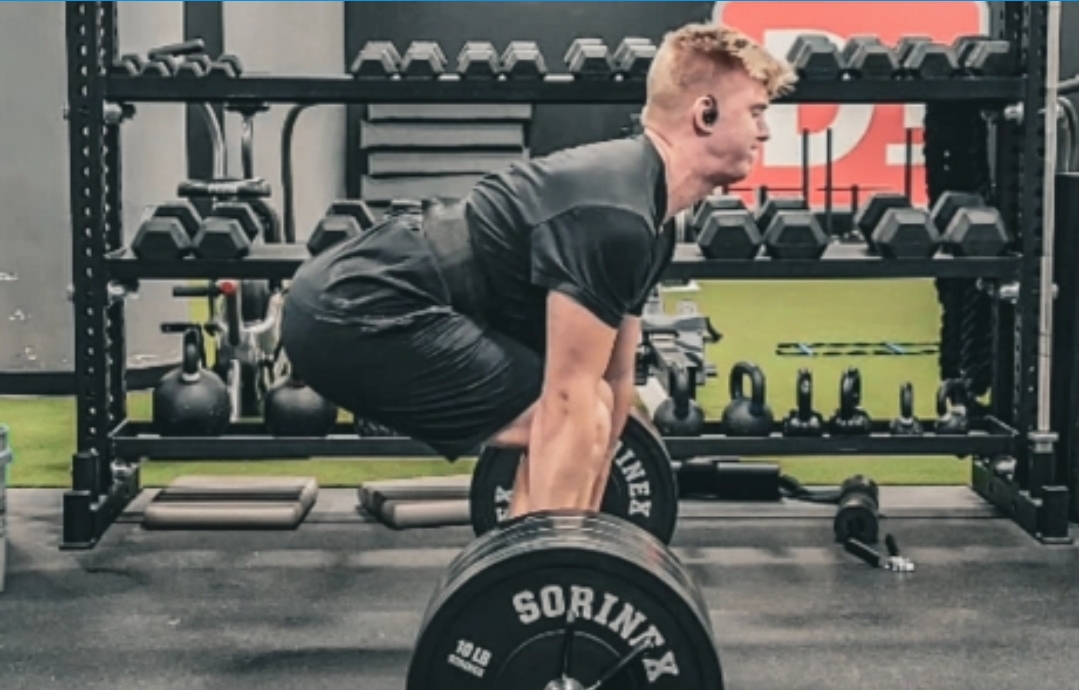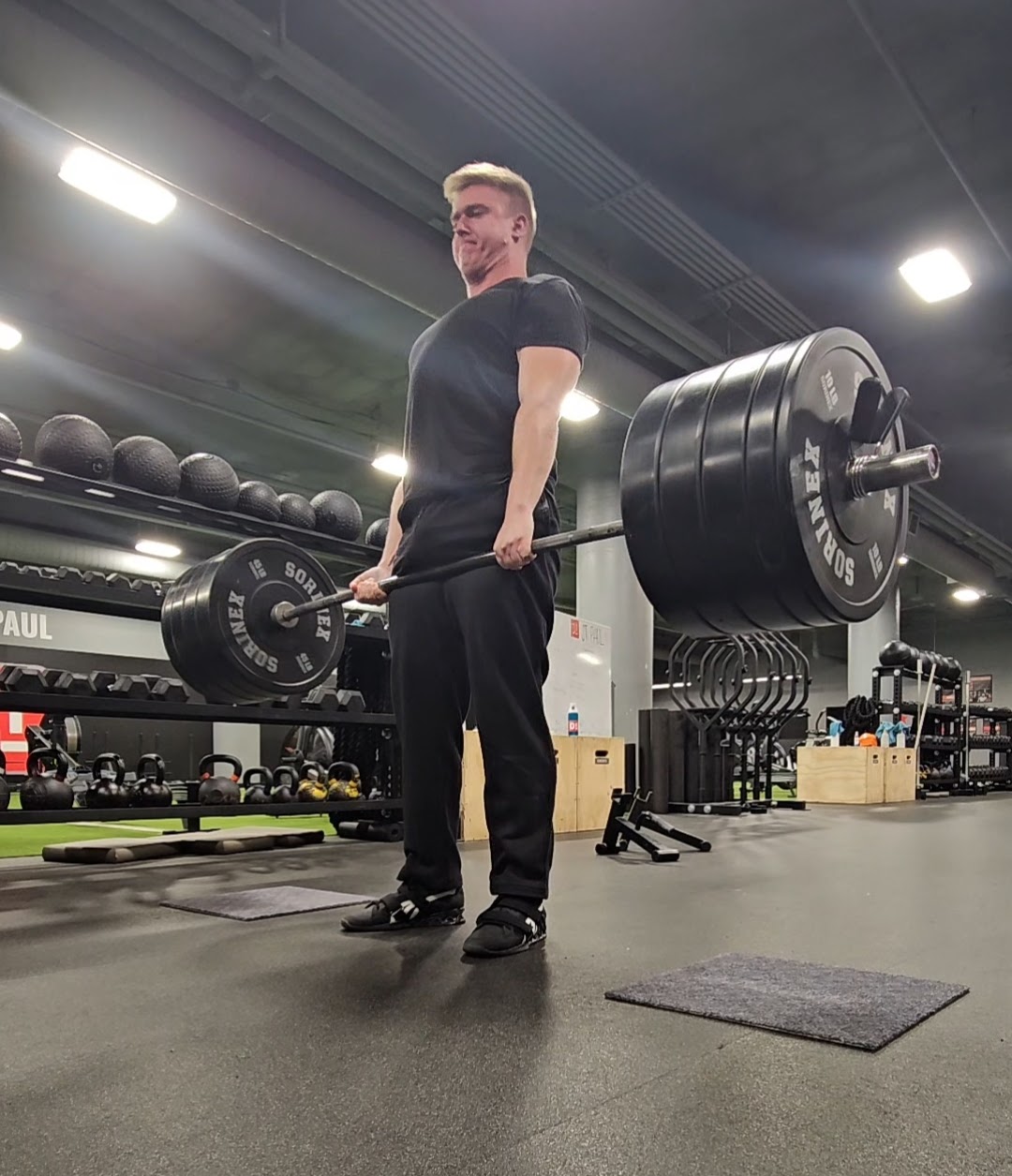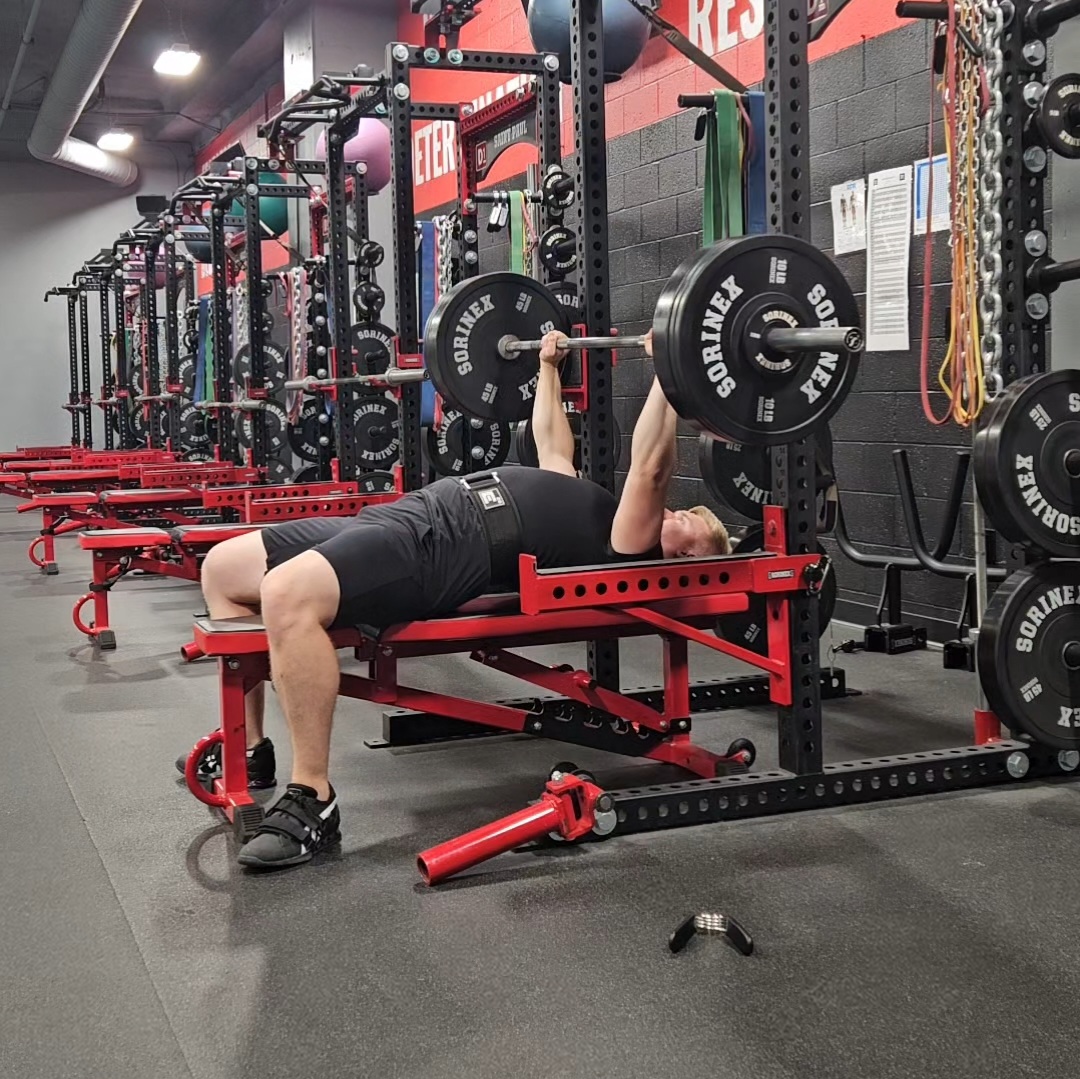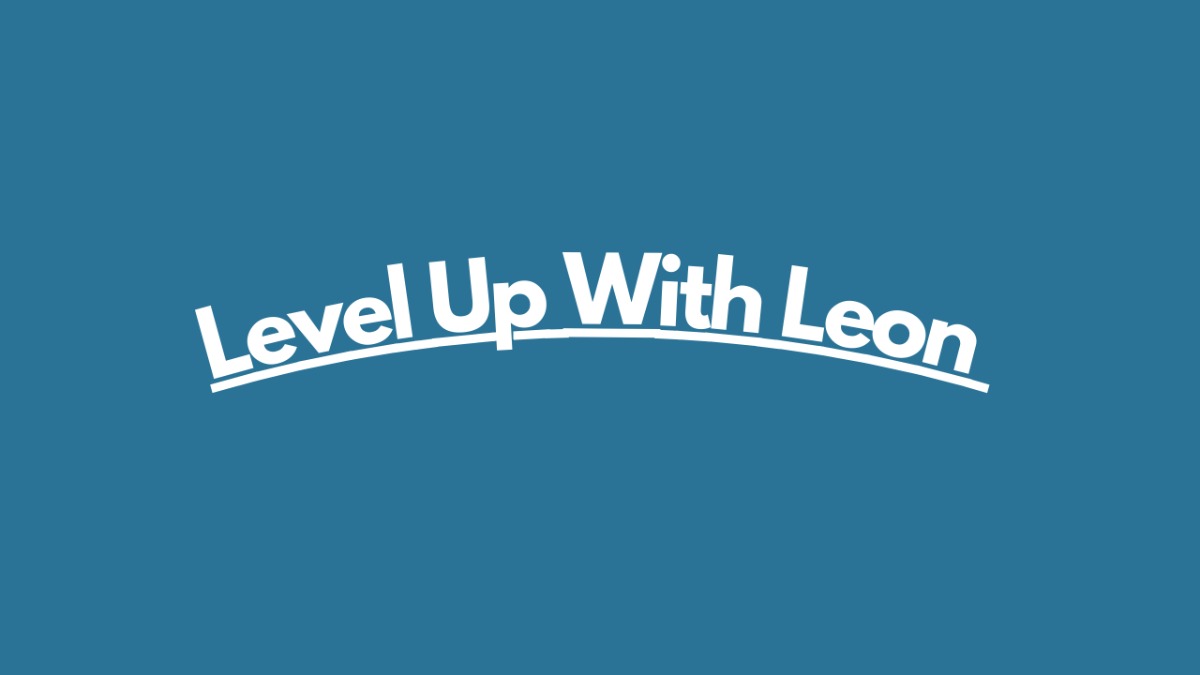Paralysis By Analysis: The Problem With Good Form
Aug 26, 2024 1:00 pm
Happy Monday!
I’ve got something to bring some sanity to your fitness game today.
One of the biggest mistakes I made during my first 4 years of training was over-analyzing everything to the point of exhaustion. I obsessed over every tiny detail of a movement, making sure it was absolutely perfect before I’d even consider adding weight to the bar or extra reps to the set.
Now, this did some good for me—it helped me become an exceptional coach, both for myself and others, when it comes to teaching proper technique. But it also cost me a ton of time that I could’ve spent simply getting bigger and stronger, without as much stress and anxiety.
We’ve all heard of ego lifting, where someone throws around more weight than they can handle with poor form, justifying it with some bro-science logic that the weight is all that matters. Well, I’m here to tell you that while that idea isn’t completely right... it’s also not totally wrong.
Let’s break this down a bit so I can explain why I’ve come to think this way, and you can decide if the mindset I’ve developed is the right fit for where you’re at in your journey.
Disclaimer: This newsletter is geared more towards intermediate lifters (2+ years of experience) rather than beginners. As a beginner, I believe your first 6 months or more should be focused on learning how to lift correctly and progressing with weight and volume ( sets, reps ) at a pace that matches your ability to master proper technique ( this learning process is different for everyone ). As you advance in your lifting journey, building a strong foundation of technique early on will allow you to push yourself harder with confidence and control when you reach the intermediate stage, where more intense training is necessary to keep seeing results.
So Here’s Why Analyzing Your Form To Death By Perfectionism Isn’t The Best Idea For Long Term Progress:
There’s No Such Thing As Perfect:
Unless you’re a twin, every human body is built slightly differently, no matter how small the differences may be (and even twins can have slight variations). When I first started learning how to squat heavy, I tried to apply general movement templates to myself and my clients, thinking that if the squat didn’t match those templates exactly, it was “wrong” or “could be better.” This mindset kept me—and sometimes my clients—stuck in our progression more times than I can count, simply because our squats didn’t look exactly like the videos I was obsessing over at the time.
The problem is that, as perfectionists or anxious people, we tend to gravitate toward black-and-white thinking and struggle to accept and appreciate the grey areas. But the thing about human beings that’s important to understand is that we are *nothing but* grey areas. We all have unique traits that can make our squat, for example, look imperfect even when it feels perfect. Do you see how that can drive someone crazy?
To solve this conundrum, I suggest doing your research and understanding what makes a lift “correct” in its fundamental sense. This includes learning the proper range of motion, knowing which muscles are being used and why, and understanding foundational elements that define an exercise (like the hip hinge in a deadlift). These basics are crucial. But once you’ve got them down, the rest becomes an individual journey of "greasing the grooves."
At this point, the key is: are you continuously progressing without:
A. Sacrificing the fundamentals of correct technique (the absolute basics)?
B. Successfully hitting each PR without injury?
Once you’ve got that covered, you gotta just put some weight on the bar and lift that shit. Overthinking perfection in your technique will keep you small and weak. Just get after it.
It’s Easy To Think You Have Perfect Form With Light Weights:
When the weight is light and easy to control, it’s easy to think you’ve got everything figured out. But once you start lifting heavy, relative to your starting point, you’ll quickly realize that setting PRs is rarely a pretty sight. Your form might break down a bit—your back could round, your knees might cave in on a squat, or you might look like you’re doing a standing bench press during an overhead press PR. It won’t always be pretty, and you’ve got to accept that if you want to reach your potential.
Make it your goal to lift with good form most of the time, but understand that occasionally, things will get ugly when you're pushing beyond your limits. That's part of the process.
“ Perfect Technique “ Is Ego Lifting In Its Own Way:
Ego lifting isn’t just about going too heavy—it can also show up when you over-prioritize technique. Focusing too much on perfect form can keep you in your comfort zone, preventing you from pushing the limits on weight or reaching failure with volume. Plus, in today’s lifting culture, where “evidence-based lifters” value flawless technique, it’s easy to fall into the trap of thinking you’re doing the right thing by not pushing yourself to the point where it gets messy.
I fell into this trap myself, making perfect technique the focus of my coaching and training, and it cost me a lot of time and progress. Don’t make the same mistake—take it from me, and focus on getting bigger and stronger sooner.
It Makes You Comfortable With Avoiding Seriously Challenging Lifts:
It takes serious guts to get under a bone-crushing squat, sit down, and stand back up with the chance that you might not make it. Being a form perfectionist can hold you back from developing the fearlessness needed to get big and strong. If every rep is perfect and slow, it’s probably not heavy enough, especially with the big barbell lifts (squat, bench, deadlift). Once you’ve mastered the basics, it’s time to dig deep, push past your comfort zone, and start throwing some real weight around.
Conclusion:
Some of us underestimate just how hard we actually need to push ourselves to get big and strong. It’s misleading at the start because gains come so easily. You can make all kinds of mistakes and still progress just by showing up. But after 2-3 years of training, you’ll hit a wall—just like anything in life that’s worth achieving—and that wall is thick. It takes serious effort to break through it.
At this point, you have to accept that it will require more effort than ever before to keep progressing, and it only gets tougher from here. In fact, most people never reach the advanced lifter level—they stay stuck in the intermediate or even beginner stages because they don’t push hard enough. There’s nothing wrong with that, but you have to manage your expectations.
So use this newsletter as a motivator. Get out there and surprise yourself—you never know what you’re capable of until you try.
Hope this shift in perspective helps you get past the “ paralysis by analysis “ stage of training faster than I did!
Weekly Wisdom - “What will happen to me?” No one can tell you that. But with courage, you can say to yourself, “I’m not sure, but I will get through it with my soul intact. I will make the best of it. I will not be afraid.” Ryan Holiday - Courage Is Calling
Physical Fun Fact - Your bones are stronger than steel: Pound for pound, human bones are stronger than steel. A cubic inch of bone can bear the weight of up to 19,000 pounds, making it a remarkably tough structure.
Be exceptional,
Leon



